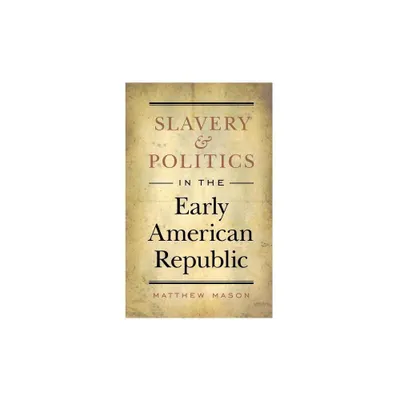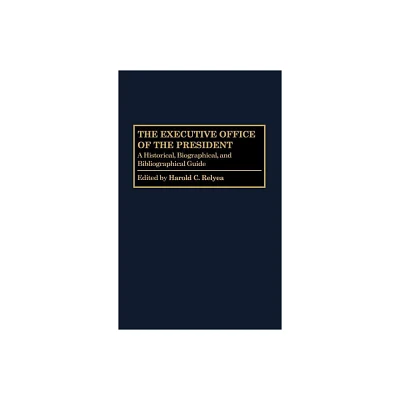Home
Slavery in the American Republic: Developing the Federal Government, 1791-1861
Loading Inventory...
Barnes and Noble
Slavery in the American Republic: Developing the Federal Government, 1791-1861
Current price: $54.99


Barnes and Noble
Slavery in the American Republic: Developing the Federal Government, 1791-1861
Current price: $54.99
Loading Inventory...
Size: OS
*Product Information may vary - to confirm product availability, pricing, and additional information please contact Barnes and Noble
Many scholars believe that the existence of slavery stymied the development of the American state because slaveholding Southern politicians were so at odds with a federal government they feared would abolish their peculiar institution. David Ericson argues to the contrary, showing that over a seventy-year period slavery actually contributed significantly to the development of the American state, even as a "house divided."
Drawing on deep archival research that tracks federal expenditures on slavery-related items, Ericson reveals how the policies, practices, and institutions of the early national government functioned to protect slavery and thereby contributed to its own development. Here are surprising descriptions of how the federal government increased its state capacities as it implemented slavery-friendly policies, such as creating more stable slave markets by removing Native Americans, deterring slave revolts, recovering fugitive slaves, enacting a ban on slave imports, and not enacting a ban on the interstate slave trade. It also bolstered its own law-enforcement power by reinforcing navy squadrons to interdict illegal slave trading, hiring deputy marshals to capture fugitive slaves and slave rescuers, and deploying soldiers to remove Native Americans and deter slave rescues and revolts.
Going beyond Don Fehrenbacher's The Slaveholding Republic, Ericson shows how the presence of slavery indirectly influenced the development of the American state in highly significant ways. Enforcement of the 1808 slave-import ban involved the federal government in border control for the first time, and participation in founding a colony in Liberia established an early model of public-private partnerships. The presence of slavery also spurred the development of the U.S. Army through its many slavery-related deployments, particularly during the Second Seminole War, and the federal government's own slave rentals influenced its labor-management practices.
Ericson's study unearths a long-neglected history, connecting slavery-influenced policy areas more explicitly to early American state development and more fully accounting for the money and manpower the federal government devoted to those areas. Rich in historical detail, it marks a significant contribution to our understanding of state development and the impact of slavery on early American politics.
Drawing on deep archival research that tracks federal expenditures on slavery-related items, Ericson reveals how the policies, practices, and institutions of the early national government functioned to protect slavery and thereby contributed to its own development. Here are surprising descriptions of how the federal government increased its state capacities as it implemented slavery-friendly policies, such as creating more stable slave markets by removing Native Americans, deterring slave revolts, recovering fugitive slaves, enacting a ban on slave imports, and not enacting a ban on the interstate slave trade. It also bolstered its own law-enforcement power by reinforcing navy squadrons to interdict illegal slave trading, hiring deputy marshals to capture fugitive slaves and slave rescuers, and deploying soldiers to remove Native Americans and deter slave rescues and revolts.
Going beyond Don Fehrenbacher's The Slaveholding Republic, Ericson shows how the presence of slavery indirectly influenced the development of the American state in highly significant ways. Enforcement of the 1808 slave-import ban involved the federal government in border control for the first time, and participation in founding a colony in Liberia established an early model of public-private partnerships. The presence of slavery also spurred the development of the U.S. Army through its many slavery-related deployments, particularly during the Second Seminole War, and the federal government's own slave rentals influenced its labor-management practices.
Ericson's study unearths a long-neglected history, connecting slavery-influenced policy areas more explicitly to early American state development and more fully accounting for the money and manpower the federal government devoted to those areas. Rich in historical detail, it marks a significant contribution to our understanding of state development and the impact of slavery on early American politics.

















